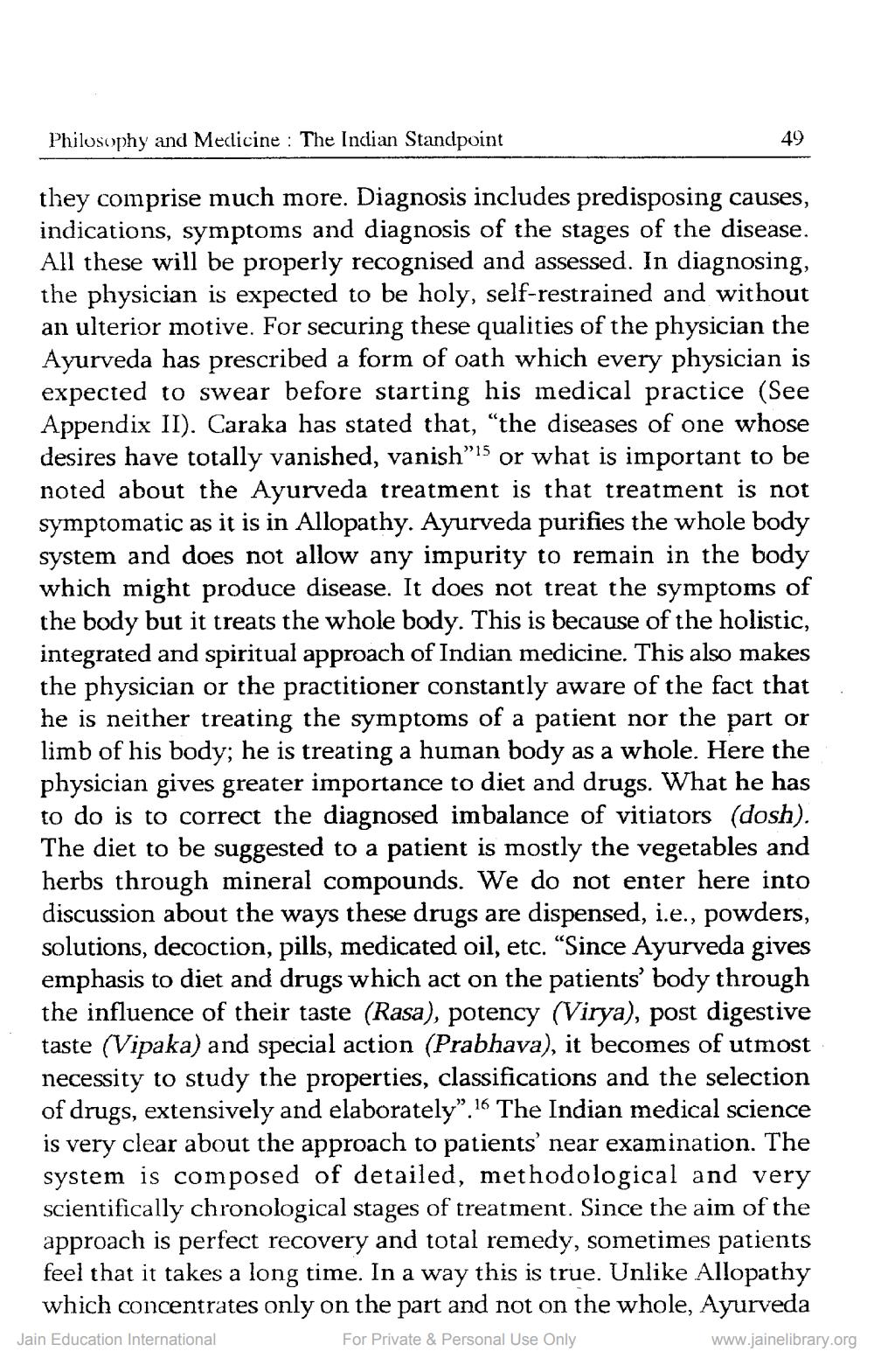________________
Philosophy and Medicine : The Indian Standpoint
49
they comprise much more. Diagnosis includes predisposing causes, indications, symptoms and diagnosis of the stages of the disease. All these will be properly recognised and assessed. In diagnosing, the physician is expected to be holy, self-restrained and without an ulterior motive. For securing these qualities of the physician the Ayurveda has prescribed a form of oath which every physician is expected to swear before starting his medical practice (See Appendix II). Caraka has stated that, “the diseases of one whose desires have totally vanished, vanish”i5 or what is important to be noted about the Ayurveda treatment is that treatment is not symptomatic as it is in Allopathy. Ayurveda purifies the whole body system and does not allow any impurity to remain in the body which might produce disease. It does not treat the symptoms of the body but it treats the whole body. This is because of the holistic, integrated and spiritual approach of Indian medicine. This also makes the physician or the practitioner constantly aware of the fact that he is neither treating the symptoms of a patient nor the part or limb of his body; he is treating a human body as a whole. Here the physician gives greater importance to diet and drugs. What he has to do is to correct the diagnosed imbalance of vitiators (dosh). The diet to be suggested to a patient is mostly the vegetables and herbs through mineral compounds. We do not enter here into discussion about the ways these drugs are dispensed, i.e., powders, solutions, decoction, pills, medicated oil, etc. “Since Ayurveda gives emphasis to diet and drugs which act on the patients' body through the influence of their taste (Rasa), potency (Virya), post digestive taste (Vipaka) and special action (Prabhava), it becomes of utmost necessity to study the properties, classifications and the selection of drugs, extensively and elaborately”. 16 The Indian medical science is very clear about the approach to patients' near examination. The system is composed of detailed, methodological and very scientifically chronological stages of treatment. Since the aim of the approach is perfect recovery and total remedy, sometimes patients feel that it takes a long time. In a way this is true. Unlike Allopathy which concentrates only on the part and not on the whole, Ayurveda Jain Education International For Private & Personal Use Only
www.jainelibrary.org




